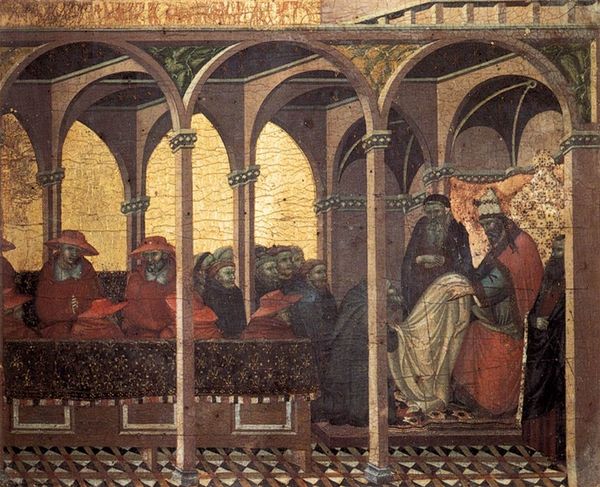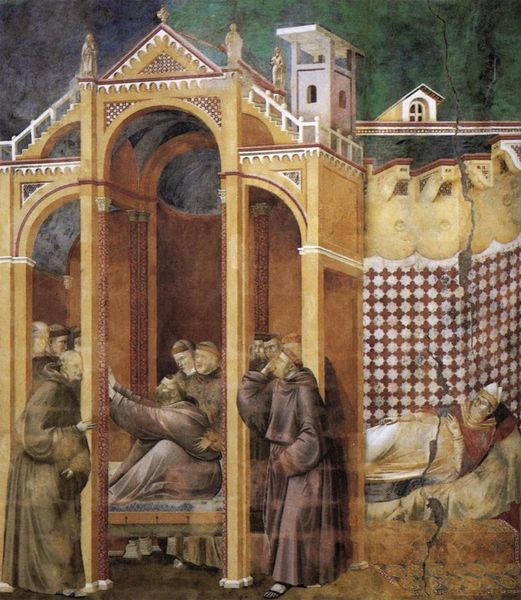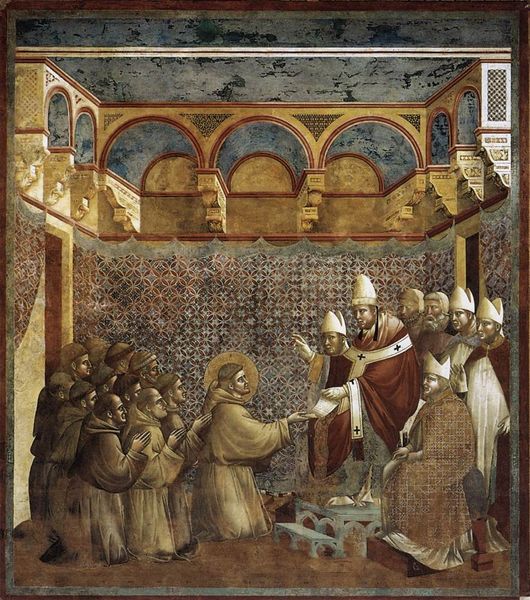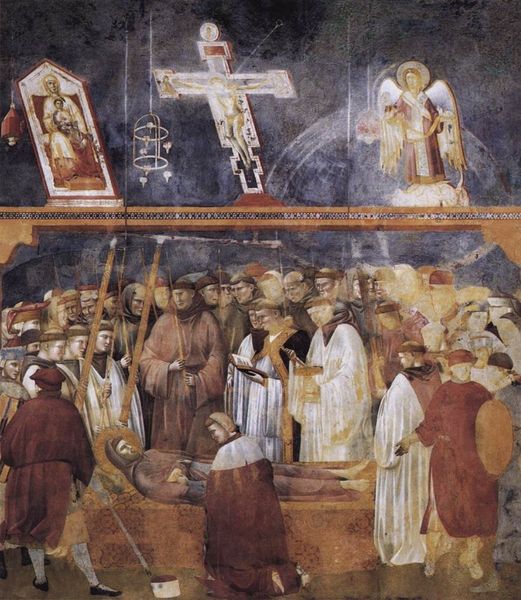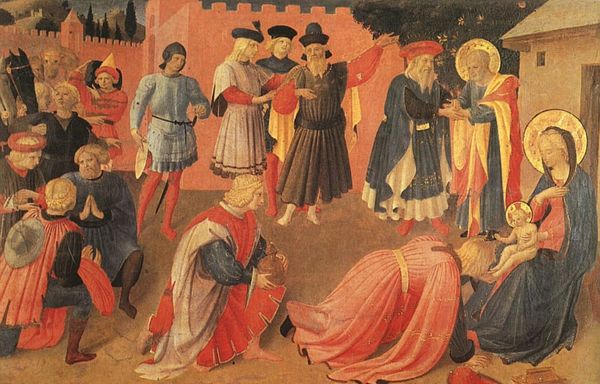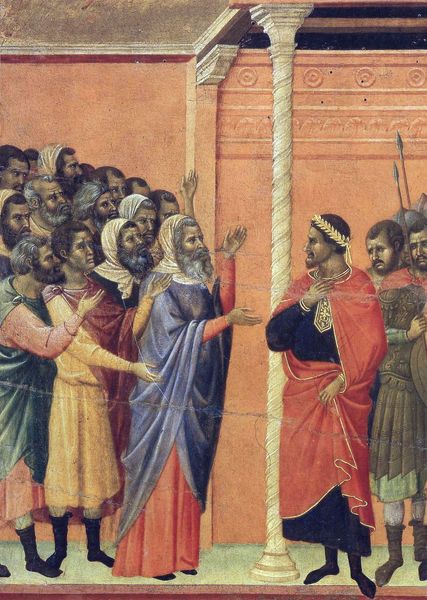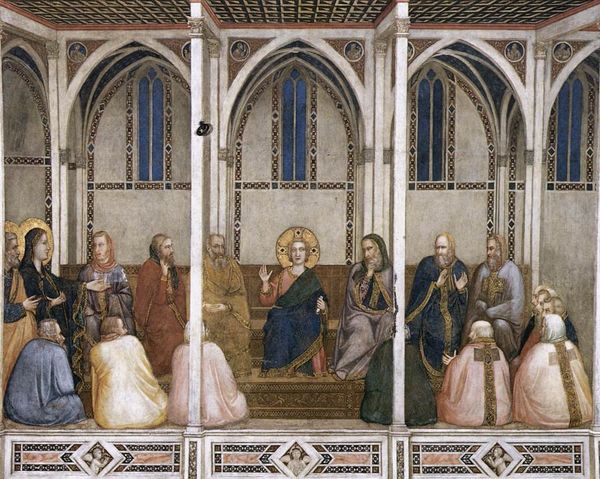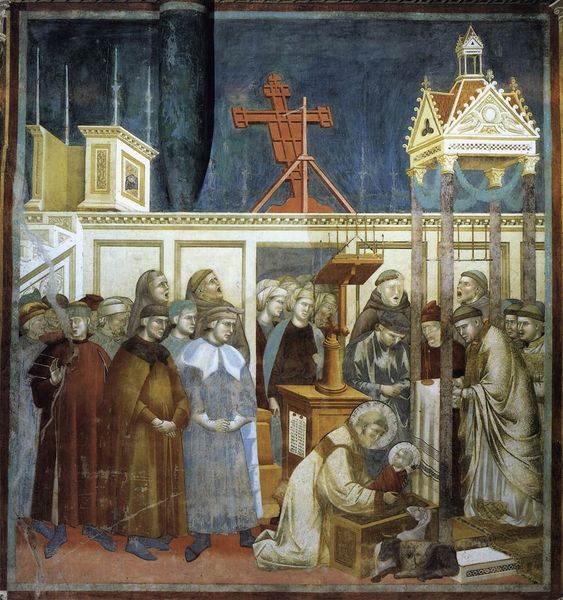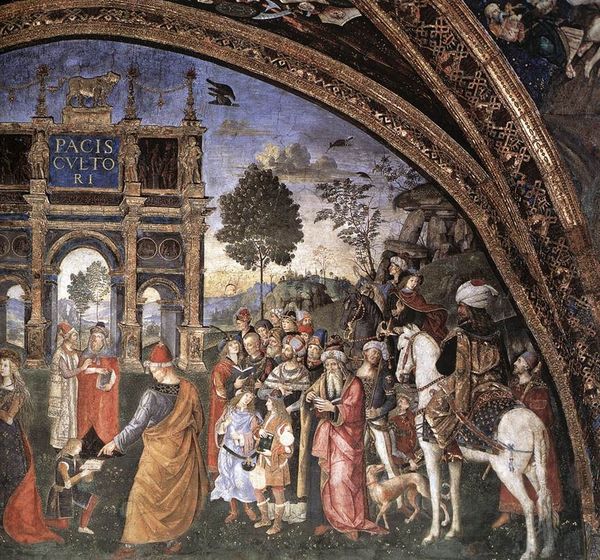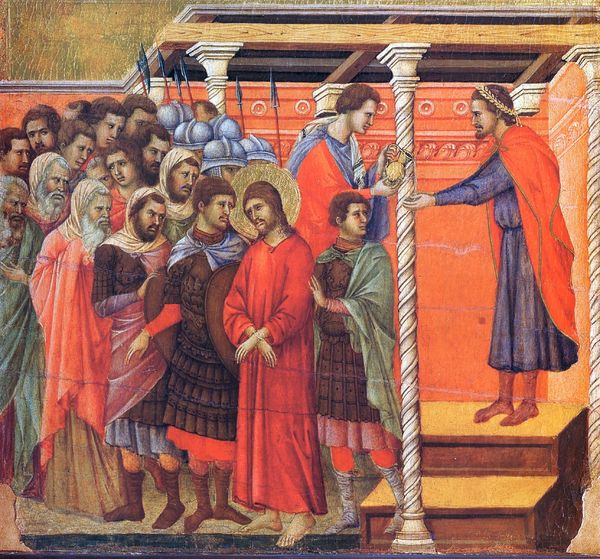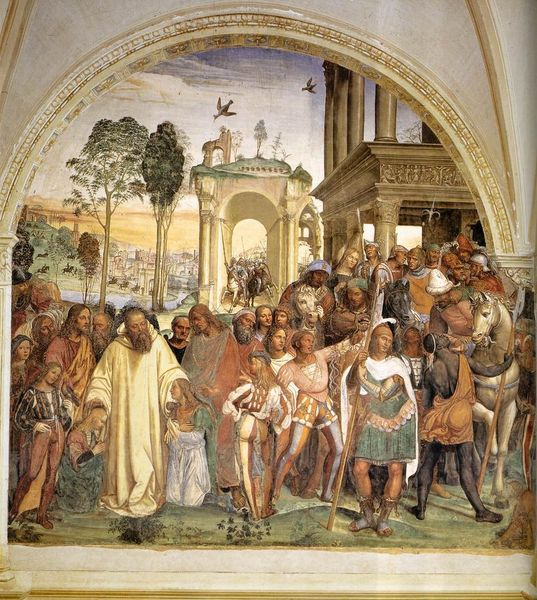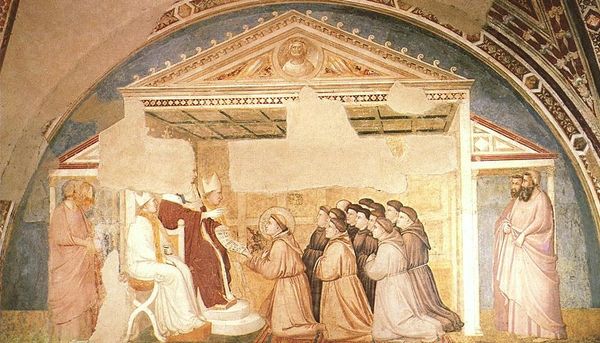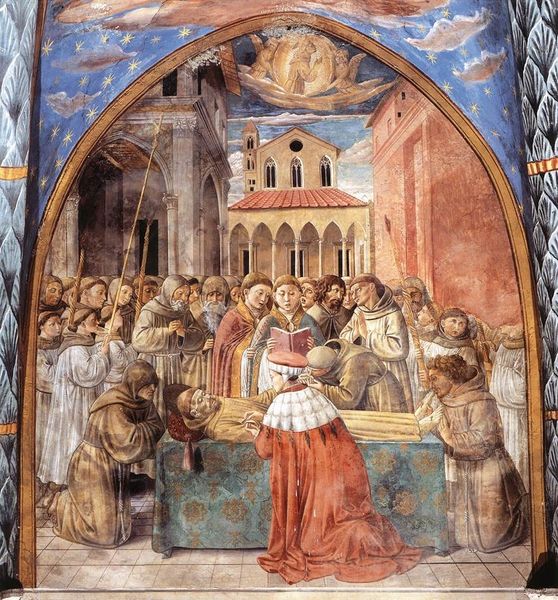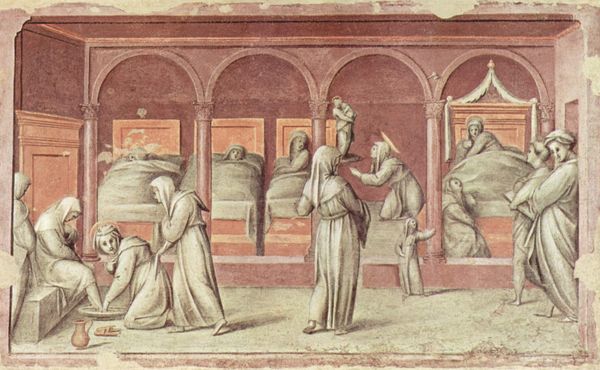
panel, tempera, painting
#
medieval
#
panel
#
narrative-art
#
tempera
#
painting
#
sienese-school
#
holy-places
#
painted
#
painting painterly
#
painting art
#
history-painting
#
italian-renaissance
Copyright: Public domain
Curator: This tempera-on-panel predella, titled "The Pope Issues a Bull to a Carmelite Delegation," was painted around 1329 by Pietro Lorenzetti. It’s a window into a very specific historical moment. Editor: It has a somber mood overall, doesn’t it? The space feels almost claustrophobic. Not a single figure is looking out. It's a sealed world. And all that red—unsettling! Curator: The composition emphasizes hierarchy through spatial arrangement and proportional differences. Note how the Pope's significantly larger size and placement within a separate, adorned enclosure underscore his authority. Editor: His gaze is quite piercing too. He knows the weight of his words, every stroke on that scroll, its ink barely dry, probably! Look at the detail, and the lines they used to build this setting… so rigid! Almost staged. Curator: Indeed. Lorenzetti masterfully uses line and perspective to direct the viewer's eye towards key elements within the narrative, primarily the exchange of the Papal bull. The almost claustrophobic space creates a formal tension. The geometric organization—consider the patterned flooring contrasted with the looser depiction of the cloud of witnesses floating just above the Pope’s dais—all contribute. Editor: Those "witnesses"... floating scribes caught mid-sentence. Like divine punctuation. And then the floor’s sharp, tiled, checkerboard pointing directly toward the center of it all. Is this whole thing meant to make the audience a fly on the wall, experiencing what a Carmelite Delegation feels when facing the man in the hat? Curator: It invites reflection on power, authority, and the role of the church, but formal analysis must also acknowledge the inherent aesthetic qualities—the luminosity of the tempera, the balanced composition. Editor: It's a curious balance between stiffness and... and I almost feel like calling it ‘life.’ So many reds playing with brown tones, with little specks of yellow highlighting faces here and there. It’s not photoreal, but the human feeling seeps in! Well, despite all those heavy stares, that is! Curator: Its careful deployment of color, line, and spatial relationships invites multiple interpretations and a sustained appreciation for the craft, technique, and the theories of composition and organization which underlie meaning. Editor: It is a scene demanding our silent presence—and, after a few minutes of absorbing that gravity, also demanding a little room to let our own questions unfold.
Comments
No comments
Be the first to comment and join the conversation on the ultimate creative platform.
